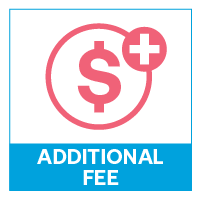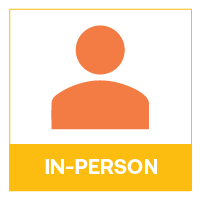Back
Short Courses
Saturday Short Courses: Full Day
Pharmacological Target Engagement and Validation
Saturday, February 5, 2022
8:30 AM – 4:30 PM
Location: 104A

Terry Kenakin, PhD
Professor
UNC School of Medicine, North Carolina, United States
Additional Fees Apply
-- visit the Short Course Program section for more information.
With the advent of highthroughput, structure-assisted, and virtual screening an argument could be made that every target is now druggable. However, with an estimated 600-1500 possible druggable genes related to disease, the bottleneck now is judicious target choice; coupled with this is the choice of discovery strategy (target- vs system-based). This course discusses the pharmacological techniques available to relate targets to therapeutic opportunity, apply new ideas to re-visit mined out or apparently intractable targets, validation beyond targets (pathway-validation) and strategies to improve the disappointing 50% efficacy failure rate for new drug candidates.
Who Should Attend:
How You Will Benefit From This Course:
Course Topics:
-- visit the Short Course Program section for more information.
With the advent of highthroughput, structure-assisted, and virtual screening an argument could be made that every target is now druggable. However, with an estimated 600-1500 possible druggable genes related to disease, the bottleneck now is judicious target choice; coupled with this is the choice of discovery strategy (target- vs system-based). This course discusses the pharmacological techniques available to relate targets to therapeutic opportunity, apply new ideas to re-visit mined out or apparently intractable targets, validation beyond targets (pathway-validation) and strategies to improve the disappointing 50% efficacy failure rate for new drug candidates.
Who Should Attend:
- Biologists involved in drug discovery
- Medicinal chemists
- Students of pharmacology
- Academic pharmacologists
How You Will Benefit From This Course:
- Gain new insights into state of the art ideas on drug targets and their association with therapeutic opportunities
- Learn new tools to quantitatively assess molecular effects on drug targets
- Learn how parameters from these methods can predict activity in all systems
- Define new vistas around old targets to better define chemical targets for receptors
Course Topics:
- Systems vs Target based research
- Validation- example of CCR5 HIV
- Knock outs / Knock ins / DREADs
- Drugging Orphans- current methods
- Drugability vs Target choice
- 50% efficacy failures: reasons why / ways forward
- Target vs Pathway Validation: biased signaling
- Single vs Multiple target engagement (CNS multi-target drugs)
- Target remits (criteria for new drugs)
- Prosecuting the genome (single genes vs ‘nomic’ collections)
- Drug ‘re-purposing’ / ‘mined-out’ or ‘intractable’ targets: other shots on goal
- Virtual screening / Conventional HTS


